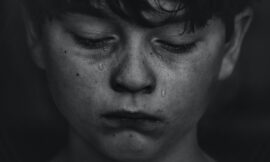Early childhood a world to be embraced
Social vulnerability is a problem that affects many families around the world, including those with children aged 0-6 years. Unfortunately, public policies are often not enough to meet the needs of these families, which can have a negative impact on child development and people's lives over time. In this editorial, we will explore the importance of supporting vulnerable families, especially those with young children, and the institutions that are working to help them.
Support
Families in vulnerable situations can face a series of challenges, including homelessness, unemployment, low income, lack of access to health services and quality education, among others. When these issues affect families with young children, they can have a significant impact on child development. For example, being homeless can lead to an unstable environment, which can affect children's sleep and, consequently, affect their academic performance. Lack of access to health services can lead to delays in child development, and lack of access to education services can affect children's learning and later success in adult life.
It is important to remember that social vulnerability is not the fault of the families themselves. It is often the result of systems that are not working properly. For example, homelessness can be caused by an inaccessible housing market, and lack of access to health services can be caused by an ineffective health care system. That's why it's important to support families in vulnerable situations, to help them overcome these challenges and have a more stable and secure environment in which to raise their children.
Infant mortality statistics in Brazil.
According to the Brazilian Ministry of Health, the infant mortality rate in 2020 was 11.3 deaths per thousand live births. This means that for every thousand births, about 11 babies die before reaching one year of age. It is important to highlight that these deaths can be avoided and, therefore, it is necessary to have public policies and actions that can reduce these rates.
Fortunately, there are several institutions that are working to help vulnerable families, especially those with young children.
Local and national governments
Local and national governments have a key role to play in supporting vulnerable families. They can implement public policies to ensure that families have access to basic services such as housing, healthcare and education. They can also provide grants and social assistance programs to help families deal with a lack of income.
Non-governmental organizations (NGOs)
Non-governmental organizations (NGOs) are also important in providing support to vulnerable families. These organizations can provide health, education, shelter and other essential services. Some NGOs also provide training.
There are several countries that are investing funds to reduce infant mortality in poorer countries. These investments are aimed at improving children's health and reducing child mortality rates in countries with limited infrastructure and few resources.
International support as a model
Among the countries that have invested significant funds to improve child health in poorer countries are:
United States of America
The USAID program, the US development aid agency, invests in a variety of programs to improve child health around the world, focusing on areas such as nutrition, maternal and child health, and disease prevention.
England
The British government has a development aid program called UK Aid, which invests in child health in developing countries. The program aims to reduce child mortality, improve child nutrition and combat diseases such as malaria and pneumonia.
Canada
The Canadian government invests in several programs to improve child health in developing countries. This includes immunization programs, disease prevention, access to clean water and basic sanitation, and other investments in maternal and child health.
These investments are seen as positive models for other countries, as they show that it is possible to improve child health in poorer countries, even with limited resources. These programs are important for ensuring that children have access to basic health care, which can have a significant impact on reducing child mortality and long-term child development.
However, it is important to remember that reducing child mortality is not just a matter of financial investment. It is necessary to address broader issues such as poverty, social inequality, lack of access to quality health care and lack of adequate infrastructure. Therefore, these investments must be seen as part of a broader approach to improving child health and well-being in developing countries.
Third sector
There are several non-governmental institutions and institutes in Brazil that have actions aimed at early childhood, with the objective of improving the health, education and development of children from 0 to 6 years old. Some of the main institutions are:
Maria Cecilia Souto Vidigal Foundation
The Maria Cecília Souto Vidigal Foundation aims to promote child development in Brazil, through research, projects and actions aimed at early childhood. The institution works in partnership with other organizations and governments to develop policies and programs that can improve the lives of children and their families.
Alana Institute
The Alana Institute is a non-profit organization whose objective is to promote the defense of children's rights in Brazil. The institution operates in several areas, including education, health, healthy eating and conscious consumption, with projects aimed at early childhood.
Institute Avisa Lá
"Avisa Lá" nstitute is an organization that aims to improve the quality of early childhood education in Brazil, through projects and training programs for teachers and educators. The institution works in partnership with governments and other organizations to develop strategies and methodologies that can improve early childhood education in the country.
Abrinq Foundation
The Abrinq Foundation is a non-profit organization that works to defend the rights of children and adolescents in Brazil. The institution operates in several areas, including health, education, protection and fight against child labor. The foundation has projects and programs focused on early childhood, with the aim of improving the quality of life for children and their families.
Zero a Seis Istitute
Zero a Seis Institute is a non-profit organization whose objective is to promote child development in early childhood, through research, projects and actions aimed at education, health and protection of children. The institution works in partnership with other organizations and governments to develop policies and programs that can improve the lives of children and their families.
These are just some of the institutions that have actions aimed at early childhood in Brazil. There are many other organizations and institutions working in this area, with the aim of improving the lives of children and their families. Importantly, these institutions are critical to ensuring that children have access to healthcare, education and protection, which can have a significant impact on their long-term development and well-being.
Ending with a brief summary
Early childhood is a crucial phase for human development, and public policies, along with civil society support, are key to ensuring that children have access to adequate conditions for healthy development. Investing in early childhood programs and policies can not only improve the quality of life for children and their families, but can also have a positive impact on society as a whole, resulting in healthier, more productive adults with a better quality of life. life.
In this sense, it is essential that public and private institutions, non-governmental organizations, companies and individuals unite to support and invest in projects that promote the integral development of children in early childhood. Only in this way can we guarantee a better future for our children and for the country as a whole.
Finally, it should be noted that it is important to maintain a critical stance in relation to public policies aimed at early childhood, demanding transparency and effectiveness in the application of public resources. Furthermore, it is important that each one of us feels responsible for contributing to building a more just and egalitarian society, where all children have the same opportunities for development and growth.



